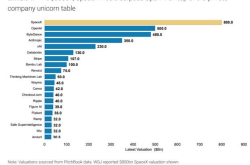Xianyu almost stood on the opposite side of users
![]() 10/14 2024
10/14 2024
![]() 672
672

Author | Lu Yao
This is the Nth time I've almost been scammed on Xianyu.
When I listed my idle iPhone for sale, it was immediately snapped up and paid for, with more than ten people inquiring about it. A self-proclaimed personal buyer spoke sincerely and straightforwardly. When I was about to ship it, I double-checked and found something suspicious about the buyer's account: newly registered, no transaction history, and the last review was for a mobile phone, raising suspicion that they might be a professional reseller who could potentially engage in "knife hand" tactics (where the buyer claims damage upon receipt to negotiate a lower price). This reminded me of a similar scam when I sold a computer, where the buyer tried to haggle down the price and then maliciously damaged it before returning it.
So, I canceled the order and blocked the buyer. Shortly after, I received abusive messages from a different account belonging to the same buyer, who was now a rude man instead of the polite woman portrayed in their profile picture.
Unfortunately, stories like this replay daily on Xianyu.
At some point, buying and selling valuable items on Xianyu became an adventure. A quick search on Xiaohongshu for "Xianyu scam" reveals a virtual victim's forum, where people share their experiences and ponder: Where is Xianyu's presence in all of this?
One buyer shared their experience of buying a luxury bag on Xianyu. To ensure authenticity, they used the "Authentication Service," a verification and guarantee service provided by Xianyu for transactions between users since 2020.
The Authentication Service's logic is straightforward: Xianyu introduces a third-party authentication mechanism to serve as a gatekeeper for buyers and sellers. The buyer sends the item to the Authentication Service first. If it's authenticated as genuine or meets the craftsmanship standards of an authentic item, it's then passed on to the seller, who automatically confirms receipt.
Undoubtedly, the Authentication Service marks a milestone for Xianyu. Since its launch in 2014, Xianyu has finally found a solution to alleviate C2C trust issues in its sixth year, further boosting transaction completion rates on the platform.
While Xianyu has also introduced the "Official Second-hand Recycling" program, this model carries higher uncertainties and faces greater market competition, leading to mixed results. The Authentication Service isn't perfect either, with criticisms about its authentication capabilities, service scope, post-authentication guarantees, user costs, and platform supervision and responsibilities.
Many people argue that Xianyu lacks an effective punishment mechanism for fake sellers and authentication platforms. In transaction disputes, it's often unclear who's responsible among Xianyu, sellers, buyers, the Authentication Service, and third-party authentication platforms, leading to finger-pointing during problem-solving.
However, Xianyu has made considerable efforts to ensure transaction security. Beyond the Authentication Service, Xianyu initially addressed disputes through community autonomy, introducing the "Xianyu Small Court" to foster community governance. With technological advancements, Xianyu also screens users and products using technical means, requiring users to undergo real-name verification via Alipay and display credit information.
Last year, Xianyu launched a new credit evaluation system called "Fish Power Score," also designed to help users better understand the credit status of buyers and sellers.
In this context, the delicate relationship between Xianyu users, sellers, buyers, and the platform becomes evident.
Due to the flexibility of buyers and sellers, Xianyu functions as a second-hand trading platform, offering leasing services and local deals, unlike Pinduoduo or Taobao with complete pre- and post-sales service chains. Xianyu's positioning is closer to that of a community.
This community aspect highlights the limitations of the second-hand trading model: the platform lacks a unified regulatory standard with absolute authority. Despite enhanced security measures, scammers and gray-area transactions remain rampant.
Many notice that besides genuine second-hand individual sellers, Xianyu is increasingly populated by merchants specializing in reselling or recycling goods, forming a substantial presence.
In 2021, with the merger of Taobao and Tmall, Alibaba shifted focus from C to B, prompting Xianyu to intensify recruitment of professional sellers. More crucially, Xianyu offers low barriers to entry, with no significant platform fees or commissions and minimal operational requirements, making it nearly cost-free to start a business.
Official data shows that Xianyu is Alibaba's third platform to reach the billion-user mark, with nearly half of its young user base contributing the majority of transaction volumes. Unlike Zhuanzhuan or Aihuishou, which focus on 3C verticals, Xianyu's offerings are diverse.
2023 was a pivotal year for Xianyu. Amid Alibaba's organizational restructuring, Xianyu was repositioned as one of the group's most promising products, receiving strategic investment over a 3-5 year period.
This is an intriguing topic.
Firstly, the platform's elevated priority and upgrades to its "Seafood Market," "Community Engagement," and "Credit System" sections have attracted more individual users, providing long-term development assurance for merchants. Secondly, two key points emerge from official information: "breaking Xianyu's previous positioning constraints" and "Xianyu as the most promising product."
Why is this so?
Xianyu began as a platform for internal second-hand item disposal within Alibaba. As e-commerce grew, so did the variety and volume of transactions on platforms like Taobao, leading to issues like unsold goods and demand for low-cost purchases. The vast demand for second-hand exchanges also emerged.
As part of Alibaba, Xianyu initially bore the task of diverting traffic from Taobao. By directing suitable second-hand goods to Xianyu, it alleviated transaction pressure on Taobao while providing users with more shopping options.
Furthermore, Xianyu's massive user traffic has evolved into a content-sharing hub similar to Xiaohongshu. For instance, many Taobao products are prominently featured on Xianyu's homepage, directing users to Taobao upon clicking. When users search for products on Taobao, Xianyu's second-hand offerings also serve as references.
In other words, Xianyu not only diverts traffic from Taobao but also reciprocates the favor.
According to this logic, "Xianyu's previous positioning constraints" largely referred to its initial role in diverting traffic from Taobao, limiting its business expansion and innovation. Redirecting rules affected user retention, and Xianyu's internal resources within the group were diminished.
More importantly, the biggest constraint for a large group often lies in commercial imagination. From an external perspective, Xianyu occupies an awkward position within Alibaba. Despite its massive user base, Effectively utilize this traffic for monetization is a crucial challenge for Xianyu.
Regarding its business model and revenue structure, Xianyu's profit comes primarily from advertising, store customization, promotion, and interest from transaction fund deposits. For a long time, Xianyu waived transaction fees for most users, further limiting its direct revenue sources.
Compared to the technical and operational costs of running such a vast application, Xianyu's revenue-generating capacity is minuscule. This topic has been discussed since 2016.
At that time, Xianyu's then-head Chu Duan adhered to Jack Ma's vision that "Xianyu's focus is on its social nature." In contrast, Zhuanzhuan had a clearer strategy, prioritizing transaction volume and security over social traffic that didn't directly convert. They specialized in categories and leveraged WeChat Mini Programs for deeper penetration.
Faced with Zhuanzhuan's rise, Xianyu relied primarily on Taobao and Tmall for traffic. In the same year, it introduced a topic feature to facilitate discussions and drive secondary traffic. However, the feature mainly redirected to self-media outlets, failing to boost transactions within Xianyu.
Returning to the present, redefining Xianyu as "the most promising product" necessitates rethinking its commercial imagination.
This year, Xianyu's decision to charge all sellers a 0.6% basic software service fee, with additional fees for high-volume sellers, sparked heated debate. The policy adjustment ensures that every transaction on Xianyu generates revenue for the platform.
This direct revenue model breaks the six-year-old promise made by its founder Chen Weiye not to charge commissions. However, given Xianyu's unique positioning and pressure to become self-sufficient amid organizational restructuring, commission charges represent a short-term optimal solution, also helping reduce malicious transactions and counterfeit goods.
Yet, new conflicts arise.
Xianyu's core goal this year is user growth, aiming for 200 million monthly active users. After abandoning its "Fish Pond" feature, Xianyu reemphasizes its community aspect, hinting at a Xiaohongshu-like content-sharing function.
Beyond commission charges, Xianyu's expansion strategy encompasses virtual products, new items, and offline B2C business, resembling a smaller-scale Taobao.
Analyzing Xianyu's actions over the years reveals a struggle to balance its community and e-commerce positioning, as well as its ToC and ToB aspects.
As the community and e-commerce aspects fuse, managing active young users, ensuring high conversion rates, enhancing user experience, and refining the business model pose significant challenges. Xianyu must maintain a balance between user growth and commission revenue while ensuring transaction security.
From this perspective, after a decade in the second-hand market, Xianyu continues to grapple with the core issue of optimizing its platform positioning and user experience.






